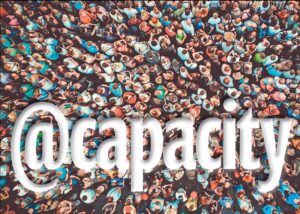Senior Visual Art majors’ will present bodies of work in a variety of mediums including: illustration, painting, photography, printmaking, and sculpture. This group exhibition is mounted under the supervision of Assistant Professor of Photography Leah Dyjak.
Gallery hours: Tuesday, Wednesday, Friday & Saturday 1-5 p.m.; Thursdays 1-8 p.m.
Please note: Wheaton currently requires guests to wear a mask indoors regardless of vaccination status.
Senior Visual Art majors’ will present bodies of work in a variety of mediums including: illustration, painting, photography, printmaking, and sculpture. This group exhibition is mounted under the supervision of Assistant Professor of Photography Leah Dyjak.
Gallery hours: Tuesday, Wednesday, Friday & Saturday 1-5 p.m.; Thursdays 1-8 p.m.
Please note: Wheaton currently requires guests to wear a mask indoors regardless of vaccination status.
Senior Visual Art majors’ will present bodies of work in a variety of mediums including: illustration, painting, photography, printmaking, and sculpture. This group exhibition is mounted under the supervision of Assistant Professor of Photography Leah Dyjak.
Gallery hours: Tuesday, Wednesday, Friday & Saturday 1-5 p.m.; Thursdays 1-8 p.m.
Please note: Wheaton currently requires guests to wear a mask indoors regardless of vaccination status.
Senior Visual Art majors’ will present bodies of work in a variety of mediums including: illustration, painting, photography, printmaking, and sculpture. This group exhibition is mounted under the supervision of Assistant Professor of Photography Leah Dyjak.
Gallery hours: Tuesday, Wednesday, Friday & Saturday 1-5 p.m.; Thursdays 1-8 p.m.
Please note: Wheaton currently requires guests to wear a mask indoors regardless of vaccination status.
Senior Visual Art majors’ will present bodies of work in a variety of mediums including: illustration, painting, photography, printmaking, and sculpture. This group exhibition is mounted under the supervision of Assistant Professor of Photography Leah Dyjak.
Gallery hours: Tuesday, Wednesday, Friday & Saturday 1-5 p.m.; Thursdays 1-8 p.m.
Please note: Wheaton currently requires guests to wear a mask indoors regardless of vaccination status.
Join us for a mid-day reception celebrating the opening of our latest gallery exhibition, Freedom is a Constant Struggle: Perspectives on Mass Criminalization. Take a break, explore the exhibit, and enjoy a Knead Doughnut.
Freedom is a Constant Struggle is on display February 18–April 14, 2022. Masks are required in the galleries regardless of vaccination status.
February 18–April 14, 2022
The exhibition title is borrowed from Angela Davis’s 2015 book and is focused on prison abolition. The work in the show centers on the perspectives of people who have been or are currently incarcerated. Each of the exhibited projects allows us to see the impact the carceral system has on individuals, offering the viewer a chance to reevaluate their perspective on the dehumanizing and harmful effects of incarceration. But each of these projects also offers solutions in the form of information, actions, ways to connect, and alternatives to incarceration.
Ultimately, through the drawings, video performances, photography, writing, and gardens, the exhibition encourages visitors to ask “What would a future without prisons look like? What would it take to get there?”
Masks are required in the galleries regardless of vaccination status.
Gallery hours:
Tuesday, Wednesday, Friday, & Saturday 1-5:00 p.m.
Thursdays 1-8:00 p.m.
February 18–April 14, 2022
The exhibition title is borrowed from Angela Davis’s 2015 book and is focused on prison abolition. The work in the show centers on the perspectives of people who have been or are currently incarcerated. Each of the exhibited projects allows us to see the impact the carceral system has on individuals, offering the viewer a chance to reevaluate their perspective on the dehumanizing and harmful effects of incarceration. But each of these projects also offers solutions in the form of information, actions, ways to connect, and alternatives to incarceration.
Ultimately, through the drawings, video performances, photography, writing, and gardens, the exhibition encourages visitors to ask “What would a future without prisons look like? What would it take to get there?”
Masks are required in the galleries regardless of vaccination status.
Gallery hours:
Tuesday, Wednesday, Friday, & Saturday 1-5:00 p.m.
Thursdays 1-8:00 p.m.
February 18–April 14, 2022
The exhibition title is borrowed from Angela Davis’s 2015 book and is focused on prison abolition. The work in the show centers on the perspectives of people who have been or are currently incarcerated. Each of the exhibited projects allows us to see the impact the carceral system has on individuals, offering the viewer a chance to reevaluate their perspective on the dehumanizing and harmful effects of incarceration. But each of these projects also offers solutions in the form of information, actions, ways to connect, and alternatives to incarceration.
Ultimately, through the drawings, video performances, photography, writing, and gardens, the exhibition encourages visitors to ask “What would a future without prisons look like? What would it take to get there?”
Masks are required in the galleries regardless of vaccination status.
Gallery hours:
Tuesday, Wednesday, Friday, & Saturday 1-5:00 p.m.
Thursdays 1-8:00 p.m.
February 18–April 14, 2022
The exhibition title is borrowed from Angela Davis’s 2015 book and is focused on prison abolition. The work in the show centers on the perspectives of people who have been or are currently incarcerated. Each of the exhibited projects allows us to see the impact the carceral system has on individuals, offering the viewer a chance to reevaluate their perspective on the dehumanizing and harmful effects of incarceration. But each of these projects also offers solutions in the form of information, actions, ways to connect, and alternatives to incarceration.
Ultimately, through the drawings, video performances, photography, writing, and gardens, the exhibition encourages visitors to ask “What would a future without prisons look like? What would it take to get there?”
Masks are required in the galleries regardless of vaccination status.
Gallery hours:
Tuesday, Wednesday, Friday, & Saturday 1-5:00 p.m.
Thursdays 1-8:00 p.m.
